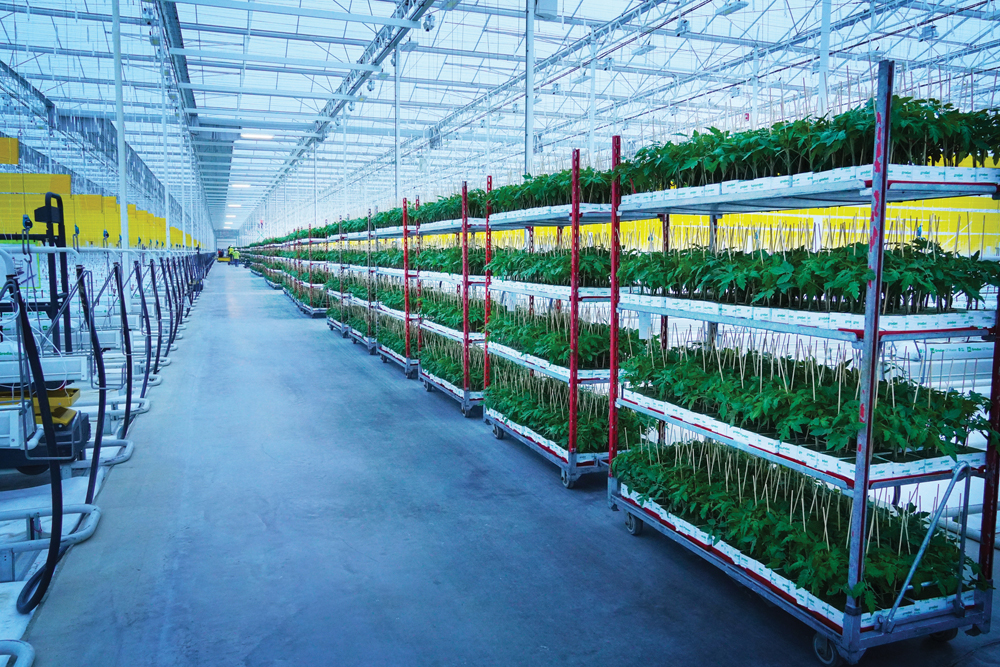“We need clarity of purpose if we are to achieve the great goal of feeding everyone, everywhere.”
– JAMES BOLGER
To feed nine billion people by 2050, world agriculture will have to pull out all the stops.
Achieving the goal of both feeding the world and protecting the environment will require abandoning “romantic” notions of peasant farming, and embracing “all responsible science” in order to make food production more efficient in the face of declining resources, according to former New Zealand prime minister James Bolger, who now chairs the advisory group to the World Agricultural Forum.
Read Also

Manitoba sclerotinia picture mixed for 2025
Variations in weather and crop development in this year’s Manitoba canola fields make blanket sclerotinia outlooks hard to pin down
“There is no corner of the globe in which to hide. Many people have not noticed it yet, but the world that we have known can’t and will not return,” said Bolger, in a keynote speech of the GrowCanada conference in Calgary last week.
Indications that the status quo is not working are evident everywhere. An estimated one billion people have been designated as “hungry,” and another 200 million have joined their ranks in the past two years.
This was evident with food riots breaking out in many countries as commodity prices soared in 2008, said Bolger, and now the financial crisis of 2009 is adding fuel to the fire, with the full implications of an estimated $14.5 trillion in global losses as a result still unknown.
“The losses are so large that they are almost impossible to comprehend.”
An often overlooked problem is the slow and barely perceptible demographic changes that have occurred, he noted.
Low birth rates in developed countries will in coming decades leave ever fewer young taxpayers to foot the bill, even as those still working in coming decades must repay the massive debts being taken on by governments the world over in propping up foundering economies.
“If you have to spend all your wealth in paying the interest – farmers know all about that – you can’t develop much else,” said Bolger. “That’s the legacy that a minority’s excesses in greed have left for the rest of the world to now manage.”
The answer to that problem will require courage on the part of politicians, who will need to open their countries to a flood of immigration from overcrowded poorer nations in order to maintain economic growth and a reasonable standard of living.
Instead of spending $1.5 trillion each year on “guns, bombs and battle plans,” he said, world leaders need to instead focus those resources on feeding the world and protecting the environment from the crushing demands of nine billion humans.
“Such a defining goal is necessary for reordering global priorities,” he said.
“We need clarity of purpose if we are to achieve the great goal of feeding everyone, everywhere. Who dares to have a goal to do less? Who would say we should feed only four-fifths of the world?”
DANIEL WINTERS
GOODBYE TO ROMANCE: James Bolger, former prime minister of New Zealand, responds to a question from the audience at the
GrowCanada conference in Calgary last week.
Bolger echoed the views of Oxford University economics professor, Paul Collier, who recently attacked Europe’s ban on GM crops, the upper and middle classes’ “romantic notions” that African peasant agriculture can allow its farmers to escape poverty and feed a burgeoning population, and unfair subsidy regimes that effectively pit the world’s poorest farmers against the world’s richest treasuries.
The main obstacle to greater acceptance of technology is politics, which in Europe is due to the “love affair” the public has with peasant agriculture that “looks good at a distance” and “sounds nice.”
But Bruce Anderson of the Harris/Decima polling firm, who spoke following Bolger’s presentation, said that the public has been conditioned by an endless string of food safety scandals over the past decade and a half to fear GM foods, chemicals and large-scale, modern commercial farming.
At the same time, marketers of natural and organic products have succeeded in reinforcing the notion that their products are better, healthier and safer than their conventional counterparts in the minds of consumers.
“All of which undermines the traditional understanding of how modern science can make us healthy, strengthen our bodies and increase longevity,” said Anderson.
His research illustrated the uphill climb faced by proponents of GM crops. With so many people suffering from obesity and related diseases in the western world, awareness of the need for more food production to feed other parts of the world is low.
On the other hand, some 61 per cent of Canadian respondents recently agreed in a survey that pest control products and GM crops have saved people in other countries from dying of hunger.
But when asked if they believed GM foods and pesticides may be responsible for increased disease or yet undiscovered new illnesses, up to 70 per cent expressed agreement.
GM proponents might have more success in pitching crop science technology as a means of helping the poor in other countries, and thereby gain, if not full approval, then perhaps the “acquiesence” of Canadian consumers if steps are taken “sooner, rather than later.”
“I think that the profile of these issues is growing right now. We’re moving from a favourable to more of an acquiescence and in some cases a resistant position. So, the trend in both of these instances is not your friend right now.” [email protected]


















